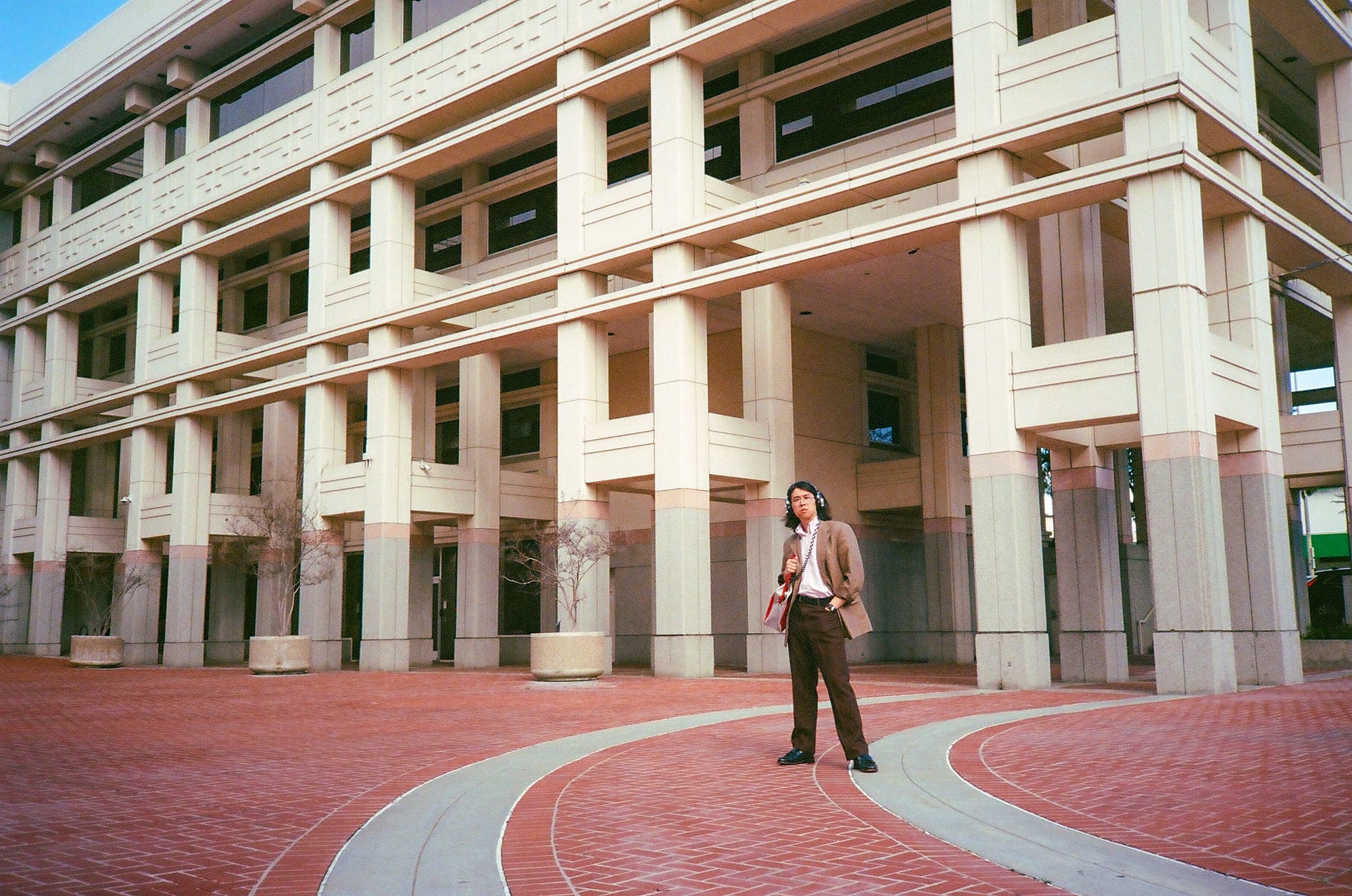Ginger Root’s Life Is a Movie
The SoCal multi-instrumentalist writes love letters to 1980s Japan through his elaborately world-building visuals and city pop-tinged funk-lite jams.

Going Up is a profile series featuring artists we love who are on the verge of breaking through.
Cameron Lew was in a Tokyo gyoza bar late one night when he noticed that the stranger sitting next to him had recently listened to his music on Spotify. “I tried to eat my dumplings so fast to get out of there, but he turned to me and he looked me in the eye,” says Lew, who makes post-chillwave indie-soul under the moniker Ginger Root. “And I was like, I know what’s about to happen. He held up his phone and was like, ‘You’re the guy! I was just listening to “City Slicker” on the way over here.’” The bartender and a salaryman in the mostly empty bar started asking Lew if he’s famous, and soon the video for Ginger Root’s viral hit, “Loretta,” was streaming on the TV. Then came the big ask: Would Lew consider joining the fan and his friend at their favorite karaoke spot?
“A few years ago, being more introverted than I am now, I’d have said absolutely not, I do not want to do that,” Lew recalls now, sitting in a park floating just off Manhattan’s West Side. “But then I thought, when does this happen? I’ll go. And it was so fun: we’re at this Edo-period Kabuki-themed karaoke bar in the Asakusa district, where it’s just this one guy who's old as dirt, dressed like a monk, serving us tea while we’re singing.” There was a dusty drum kit in the corner, and the fans asked Lew to play while singing “the two Japanese songs I know.” At the end of the night, the old man gave Lew a business card for the joint—which ended up coming in handy during the making of the third Ginger Root LP, 2024’s Shinbangumi.
In need of somewhere to record drums while living abroad for a few months, the Orange County-based Lew—who records solo but performs live with a band—found the business card and called up the owner. “He goes, ‘Oh, the musician kid.’ I was like, ‘So that drum set… if I rent out your karaoke bar like I was having a party, could I record there?” The resulting session ended up on Shinbangumi’s “Kaze,” a Japanese-language ditty that hits somewhere between lounge-music exotica and a vintage game-show interstitial.

Most strides in the story of Ginger Root involve some sort of confrontation of Lew’s imposter syndrome. His 2022 EP, Nisemono, even explored the topic head on, via a storyline in which Ginger Root writes music for an ’80s J-pop idol and then suddenly has to take her place at showtime. “I think my imposter syndrome will never go away, or it’ll be a very long time,” he tells me. “It’s something that will come with any creative project. Sometimes you just feel like you’re a fraud and you don’t deserve success.”





